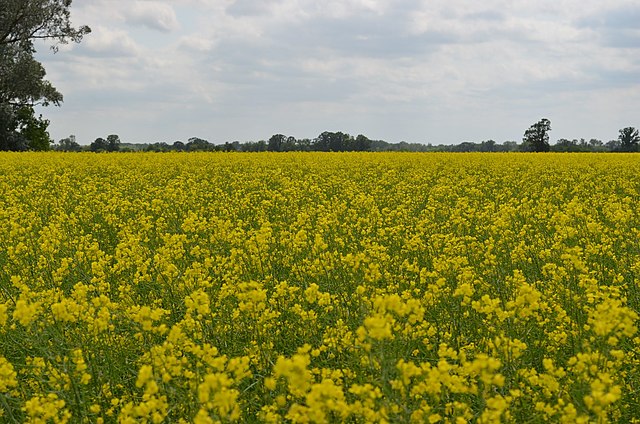China temporarily imposed 75.6% duty on grain canola imports from Canada on August 12, 2025, effective two days later.
Now on its second leg, the tiff began in March 2025 with 100% levy on canola oil and meal imports.
The latest action will impact the world’s top importer of rapeseed, which China almost exclusively buys from Canada.
Beijing justifies cites a need to cushion domestic oilseed growers from uncompetitive rapeseed prices due to import “dumping.”
But it is central and western Canada’s farmers in Manitoba and Alberta, respectively, who will bear the brunt of tariffs.
According to farmer John Guelly from Alberta via Global News, canola represents around 15% of the national agricultural sales income. It brings a yearly production value of C$12 billion ($8.72 billion).
Manitoba’s farmer Ryan Hofford in his part expects price decrements by C$50 ($36.33) an acre or C$30 ($21.8) a tonne.
Due to rise in input costs such as fertilizers, Hofford’s estimated 50-dollar loss will directly impact his profits.
Luckily for him, he won’t see meteoric losses because he always pre-calculates production costs.
What goes Around Comes Round
Many see this as retaliation for the 100% electric vehicle (EV) tariff that Ottawa hit Beijing with in October 2024.
Conversely, analysts in Canada find that vehicle, steel and aluminium industries combined are smaller than the standalone canola sector.
According to Scott Moe, premier of central Canada’s Saskatchewan province, the national canola industry is worth C$43-45 billion ($31.24-32.7 billion).
So big is the sector that it has attracted defence from the ground up. One such is Alberta’s farmer Ian Chitwood, who told Calgary News of the unfairness of paying the price for auto protectionism.
Though the tariffs are temporary as they stand, they have created worry across the grain canola sector. Farmers now want the government to intervene and broker the peace with Beijing at once. The statistics below imply the growers’ plight, for the oriental nation is their biggest export zone.
Canada-China Seed/Grain Canola Trade Statistics
Canada’s canola industry boasts in the excess of 21 million acres a year, the second highest of any crop. This vast acreage grows a crop that earns farmers some C$12.9 billion ($15.91 billion) from canola seed alone, as of 2024. In 2024, China led canola seed imports from Ottawa at 5.9 million tonnes worth around C$4 billion ($2.91 billion). They represented 67% of all export volume.
The below data, courtesy of the Canola Council gives a peek at annual exports of seed/grain canola into the China market:
| Year | Canola seed export volumes to China [tonnes] | Total canola seed exports to the world [tonnes] |
| 2024 | 5.863 million | 8.659 million |
| 2023 | 4.594 million | 7.087 million |
| 2022 | 2.168 million | 5.664 million |
| 2021 | 2.252 million | 8.251 million |
How much canola oil does Canada export to China?
Canada exports around C$5 billion ($3.02 billion) in canola oil a year to China, as of 2023, according to the OEC. This amount is only beaten by the United States and Mexico.
Does China buy canola meal from Canada?
Data by the Canola Council shows China buys roughly 1/3rd of Canada’s canola meal annually, per the table below.
| Year | Canola meal export volumes to China [tonnes] | Total Canola Meal Exports to the World [tonnes] |
| 2024 | 2.003 million | 5.771 million |
| 2023 | 1.829 million | 5.434 million |
| 2022 | 1.894 million | 4.838 million |
| 2021 | 1.492 million | 5.004 million |
